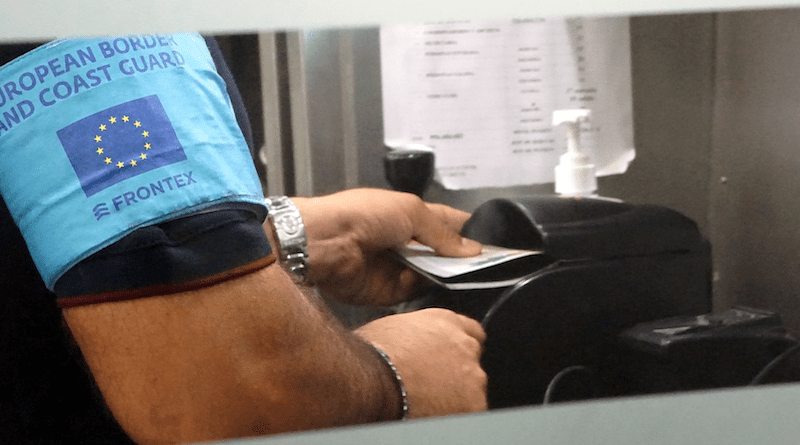EU Parliament Supports Frontex Operation In North Macedonia
By EurActiv
By Eleonora Vasques
(EurActiv) — The EU’s border and coast guard agency Frontex will provide operational support in the border management of North Macedonia, “with full respect for fundamental rights”, under an agreement adopted by EU lawmakers on Wednesday (15 February).
Frontex will deploy its teams to support North Macedonia authorities in managing migrants at the border of the country, which lies on the so-called Balkan Route used by migrants to get from the south-eastern to western Europe.
This is “the conclusion of an international agreement between the EU and Republic of North Macedonia”, said a press release on the subject issued by the European Parliament.
According to Frontex data, irregular crossing through the Balkan route “more than doubled” in 2021, in comparison with the previous year, for a total of 61,735 crossings detected, while 330,000 were registered in 2022 – the highest number since 2016, according to the EU agency.
In detail, the joint activities have to be requested by the North Macedonia authorities, on the basis of an operational plan.
The agreement will enter into force two months after the EU and North Macedonia notify the completion of internal ratification procedures.
Human rights protection
According to the text of the agreement, “the staff have to fully respect fundamental rights, including access to asylum procedures and human dignity, and pay particular attention to vulnerable groups”. To ensure that, the proposal stipulates that there will be a dedicated Frontex office in charge of monitoring human rights.
Frontex has come to be considered as one of the most controversial EU agencies after documented investigations and reports revealed irregularities in dealing with migrants at the borders, such as illegal pushbacks.
In April 2022, the then-Frontex director Fabrice Leggeri resigned after an investigation carried out by the EU Anti-Fraud Office (OLAF) revealed irregularities in Frontex operations, with systematic violation of human rights.
An interim administration was then set up, with Aija Kalnaja as the transitional director. However, Kalnaja was placed under investigation as well, EU media revealed on 16 December. According to them, this investigation denied her the possibility to be confirmed as a director.

